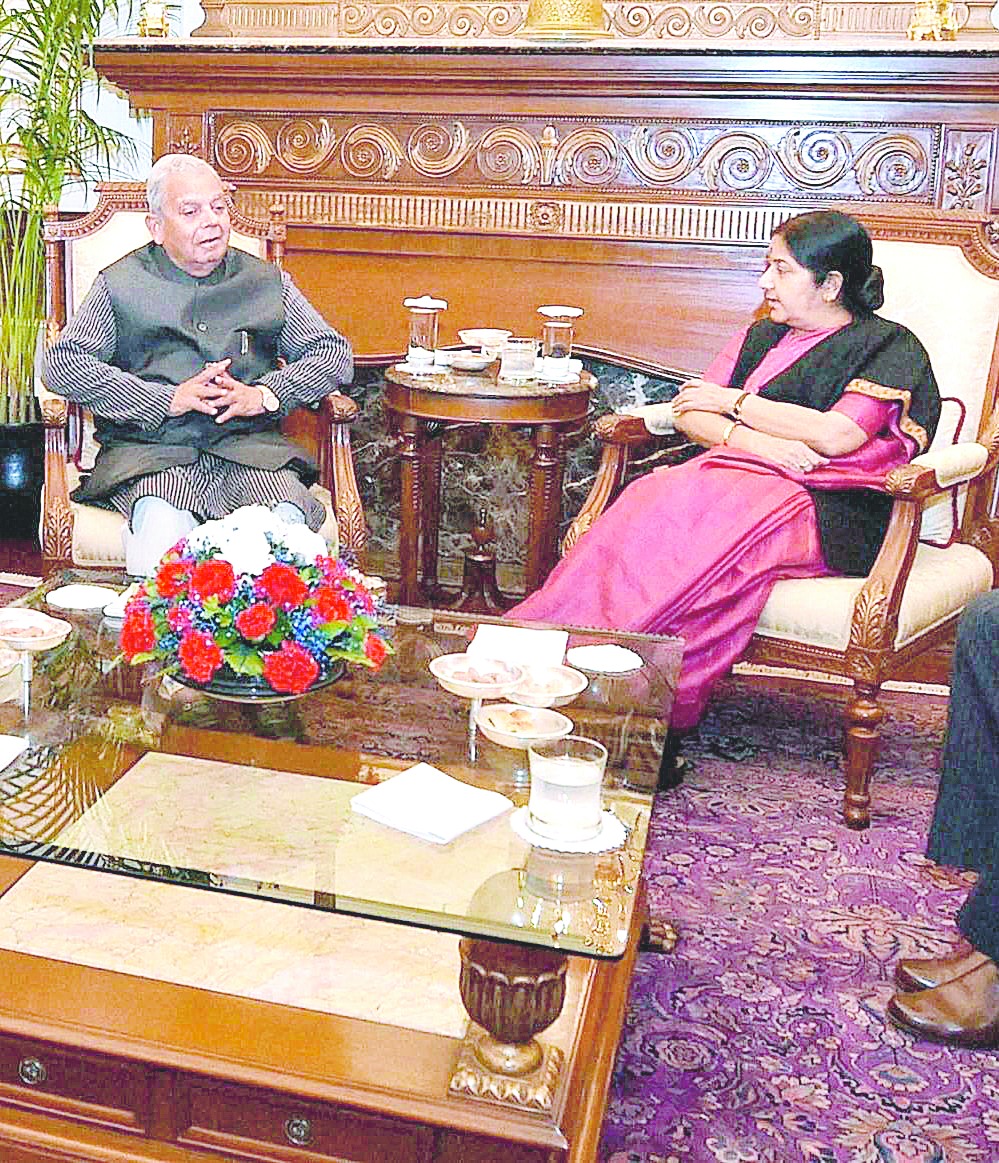
New Delhi, April 6: Foreign minister Sushma Swaraj's assertion on Wednesday that India does not cry racism while probes are on over attacks on its nationals abroad overlooked the track record of her own Prime Minister - and his predecessor - in concluding a race bias.
Her comments also papered over a confusion within her own government's approach to crises involving foreign nationals if they were of Indian origin, and overlooked her own recent hint at racism involving an Indian priest in Australia.
Sushma had criticised African ambassadors to India yesterday in Parliament for publicly calling recent attacks on Nigerian nationals in Greater Noida "xenophobic and racial".
She had argued that India did not jump to similar conclusions when its nationals were attacked abroad, unless a probe had conclusively established racial bias. She cited recent attacks in the US and in the African nation of Mozambique to buttress her point.
"We didn't say that all these attacks were racially motivated," Sushma said, speaking in Hindi. "We say every criminal act is not racist. That's why we are saying, wait for the probe to be completed and its results to be out."
But Prime Minister Narendra Modi, when he was chief minister of Gujarat, had in 2009 made clear to a group of visiting Australian leaders that he viewed attacks on Indian students in that country as racist.
The Australian government and law enforcement agencies were still probing the incidents at that time and had denied a racist link.
"He urged the Australian government to find a permanent solution to the racist attack on the Indian students and to create a favourable atmosphere of trust and safety for them," Modi told the Australian delegation, including the then Australian high commissioner, on July 8, 2009, according to a readout of the meeting still available on his website.
Modi wasn't the only Indian leader at the time to insist the attacks - or at least some of them - were racist.
"I have been appalled by the senseless violence and crime, some of which are racist in nature," then Prime Minister Manmohan Singh had said in Parliament on June 9, 2009 - a month before Modi's comment to the Australian delegation.
The Australian government conceded only a year later that some of the attacks on Indian students - dozens were injured in a spate of assaults centred on Melbourne - were racially motivated.
The Modi government has also broken with past Indian diplomatic traditions by protesting attacks on foreign nationals of Indian origin. In the past India had limited its articulation of concerns to incidents of attacks on Indian nationals abroad.
Delhi articulated concerns over attacks on Indian-origin American citizens recently and, in November, Modi had dialled his Australian counterpart Malcolm Turnbull to protest the killing of an Indian-origin Australian bus driver.
No racial motive had been established at that point. Some officials here conceded that while the moves helped solidify the government's support within the Indian diaspora, they also sent the signal that India viewed the world through the prism of ethnicity more than nationality.
Sushma too recently suggested a racial bias against an Indian priest who was attacked in a church in Australia - without using the word and hours after the attack, while the incident was being probed.
"There was an attempt on the life of a church priest of Indian origin Father Tomy Mathew in Australia by a citizen of Italian origin," Sushma had written on Twitter on March 20. "The attacker had a problem with Father Mathew presiding over the church."










